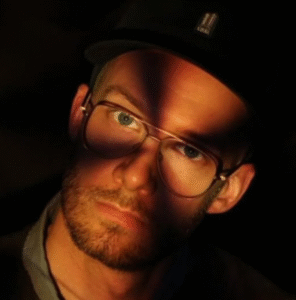Save Our Souls: Jan Kalter’s Whispered Anthem for the Disconnected
When Cologne-based songwriter Jan Kalter released “Save Our Souls,” he didn’t just drop a track—he opened a window. A window into solitude, into longing, into the soft, flickering space between connection and collapse. The song, wrapped in hushed acoustic textures and ghostlike harmonies, doesn’t demand attention. It invites it. Gently. Like a hand reaching out in the dark.
Kalter’s voice is fragile but steady, like someone trying not to cry while still choosing to speak. It’s the kind of delivery that doesn’t just convey emotion—it carries it. And in a world saturated with noise, “Save Our Souls” feels like a whispered plea that somehow echoes louder than a scream.
🎧 The Sound of Stillness
From the first note, the song resists grandiosity. There are no swelling strings, no dramatic crescendos. Instead, Kalter leans into restraint. The guitar is gritty, imperfect, textured like old wood. The backing vocals hover like mist. The production is minimal, but intentional—every breath, every pause, every crack in the voice is part of the architecture.
It’s a sound that recalls Bon Iver’s falsetto tenderness, Sufjan Stevens’ lyrical introspection, and the melancholic expanse of Lord Huron. But Kalter isn’t imitating. He’s inhabiting. His sonic palette is his own—rooted in quiet urgency and emotional precision.
This is indie folk at its most intimate. Not a genre, but a gesture.
🧠 The Psychology of the Plea
“Save Our Souls” isn’t just a title—it’s a thesis. A call for empathy. A reminder that in moments of crisis, what we need most isn’t solutions—it’s presence.
Kalter has said the song is about how often we miss each other in times of need. That sentiment pulses through every line. There’s no blame, no bitterness—just a gentle ache. A recognition of how easy it is to drift apart, even when we’re trying to stay close.
The lyrics don’t preach. They confess. And in that confession, they create space—for reflection, for healing, for hope.
🌲 The Visual Language
Released via Cold Skipper Inc., the single arrived with a haunting lyric video. Misty forest imagery mirrors the song’s mood—ethereal, grounded, quietly cinematic. Trees fade into fog. Light flickers through branches. It’s not just scenery—it’s metaphor.
The forest becomes a symbol of isolation, of searching, of the natural world’s indifference and beauty. And in that setting, Kalter’s voice feels like a campfire—small, warm, flickering against the vastness.
It’s a visual extension of his artistic vision, which lives in the tension between solitude and connection.
🧵 The Thread of Biography
Kalter’s journey to this moment is stitched with eclectic influences. He grew up in Nordhorn, sneaking piano sessions at a neighbor’s house. He moved through phases of grunge, brass instruments, and ambient experimentation. That musical restlessness shows in “Save Our Souls”—not in genre-hopping, but in depth.
This is a songwriter who’s listened. Who’s wandered. Who’s learned to let silence speak.
And that learning shows. The song doesn’t try to impress. It tries to understand.
🔍 The Listener’s Role
“Save Our Souls” isn’t background music. It’s a conversation. One you stumble into. One that lingers.
To listen is to participate. To feel the weight of the words. To notice the breath between them. To let the song ask questions you didn’t know you were carrying.
It’s not a song that tells you what to feel. It’s a song that asks: Are you still feeling?
And in that asking, it becomes a mirror.
🕊️ The Cultural Context
In 2025, the world is noisy. Fast. Fragmented. We scroll past headlines, swipe through heartbreak, mute our own grief. “Save Our Souls” arrives like a pause. A reminder that stillness is not emptiness. That fragility is not weakness.
It’s a song for the disconnected. For the overwhelmed. For the ones who feel too much and say too little.
And in that way, it’s not just music—it’s medicine.
💡 What We Learn
From Jan Kalter’s “Save Our Souls,” we learn that imperfection is powerful. That restraint can be radical. That vulnerability is a form of strength.
We learn that empathy isn’t loud. It’s quiet. It’s consistent. It’s the choice to stay present even when it’s uncomfortable.
We learn that music doesn’t have to solve anything. It just has to show up.
And we learn that sometimes, the most important thing we can say is: I’m still here.


